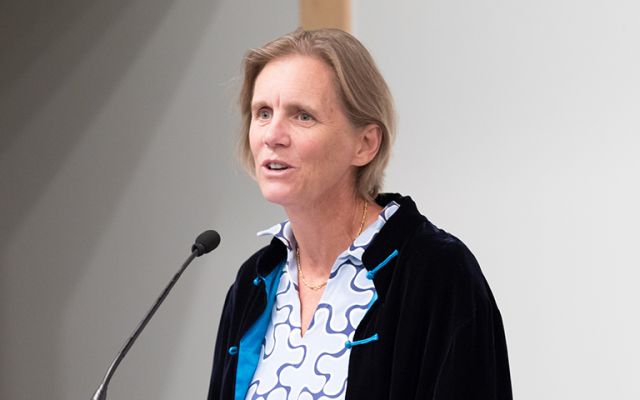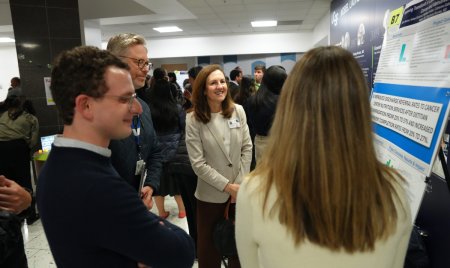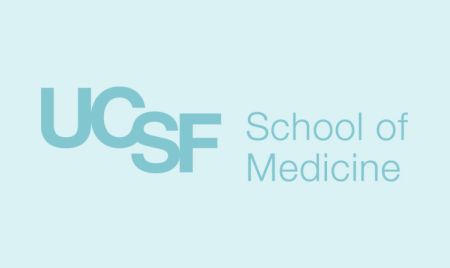A Chat with Dr. Susan Ball on Narrative Medicine, Mentorship, and Careers in Academic Medicine

Dr. Susan Ball speaks on the power of narrative medicine.
During her visit to UCSF for our Celebration of New Members, I had a chance to sit down with Susan Ball, MD, MPH, MS and discuss narrative medicine, mentorship, and careers in academic medicine.
Tell me why you’re drawn to narrative medicine (NM).
Narratives are everywhere in our lives, and our patient’s lives. If we can connect with our patients’ stories as well as our own we can provide better care. Teaching NM with students allows time for reflective writing. When students write there is a certain vulnerability, but often students are very willing to engage with stories.
How was your experience today leading a narrative medicine writing exercise with our UCSF students?
I was really impressed with the students. We read “The Ship Pounding” (a poem by Donald Hall). Students were invited to write down their reactions, and we discussed the metaphor of the hospital as a ship pounding. Several students reflected in perceptive and thoughtful ways about their own ships pounding on the shores of medical school as they continue their training journeys.
How do trainees’ reflections evolve over their developmental trajectories from early medical students to residents, fellows and onto being full-fledged physicians?
Early medical students readily sense the absence of person-to-person connections (between providers and patients). This evolves as they go through school. Some students come into medical school at a more mature stage in their lives but also mature further on the way to becoming a physician. I’m aware that I’m aging and changing over the years also. I’m significantly older than my students now - do they think of me as old? I’m aware that small things bother me less - but it’s funny because I don’t feel that far removed from where I was as a student.
Let’s talk about mentoring and mentorship.
I am in a position now to mentor more. Students really appreciate the mentorship - helping them acknowledge that their past identities are shifting and that they are accruing life experiences. I wish it were a little more formalized. I wish there had been more mentoring for me when I was just starting out. Everyone is “busy,” but I hate that term “too busy” [to mentor]. I did get to work with Rita Charon as a co-PI in an earlier grant. I admire her tremendously - but it wasn’t a formal mentor-mentee relationship.
Tell us about your clinical work.
I started working with the HIV positive community beginning in the 1990’s. Then, and now, our patients come from “the margins of society,” and their stories are always a source of sustenance for me - they’re definitely a part of who I am (as a physician). That work has some nobility about it - before effective treatment our multidisciplinary care enabled us to take care of them even before we could give them medications for HIV.
Your book (Voices in the Band: A Doctor, Her Patients, and How the Outlook on AIDS Care Changed from Doomed to Hopeful) chronicles your early experiences of working as an AIDS doctor beginning in 1992. Any thoughts of writing a sequel?
When “Angels in America” was on Broadway it felt like being at work! Yes, I’d very much like to write another book.
Any thoughts for a title?
(laughs) Maybe “Then what happened? The second decade of HIV/AIDS care in America.” If only I had a mentor to force me to write it!









